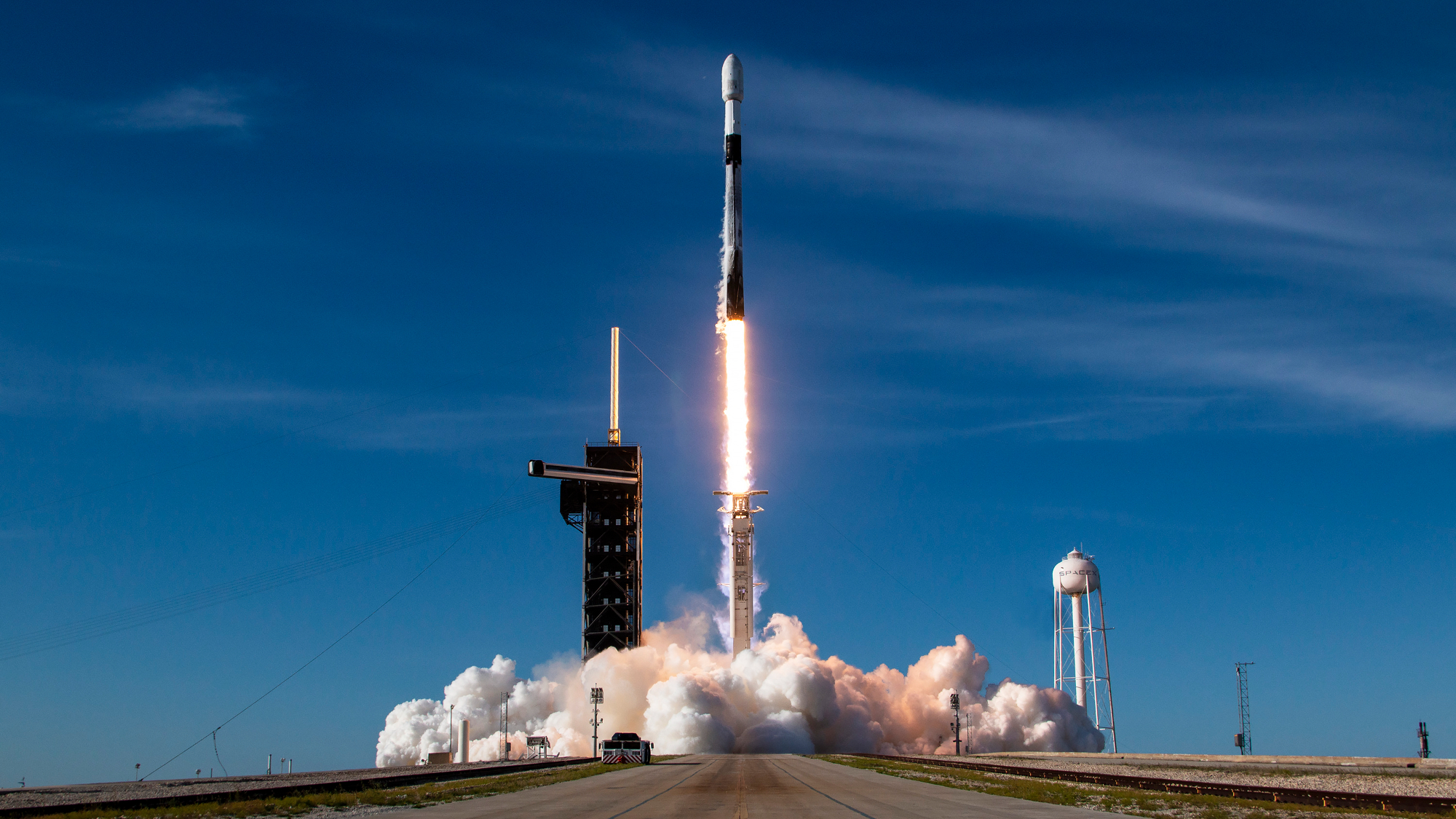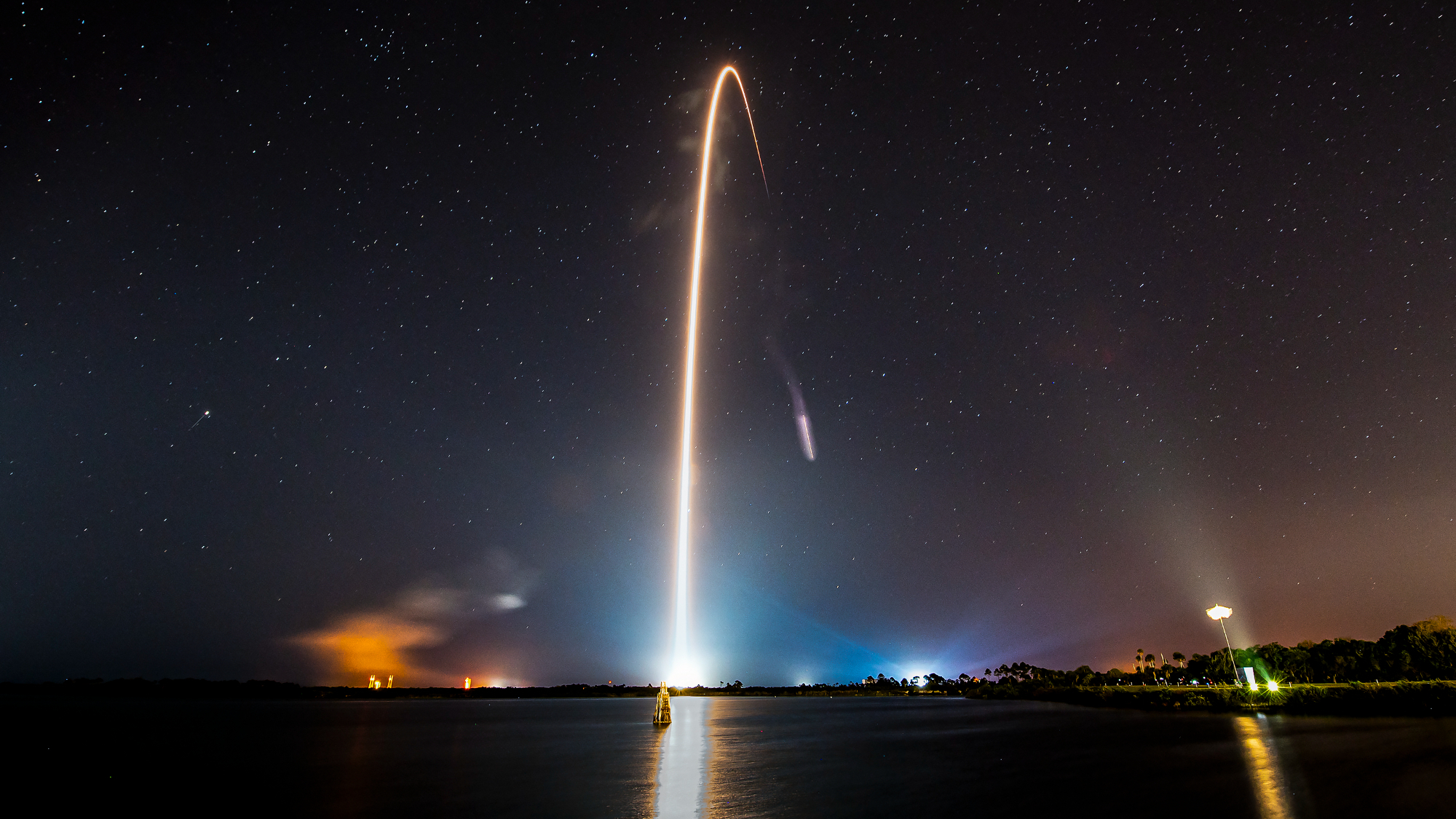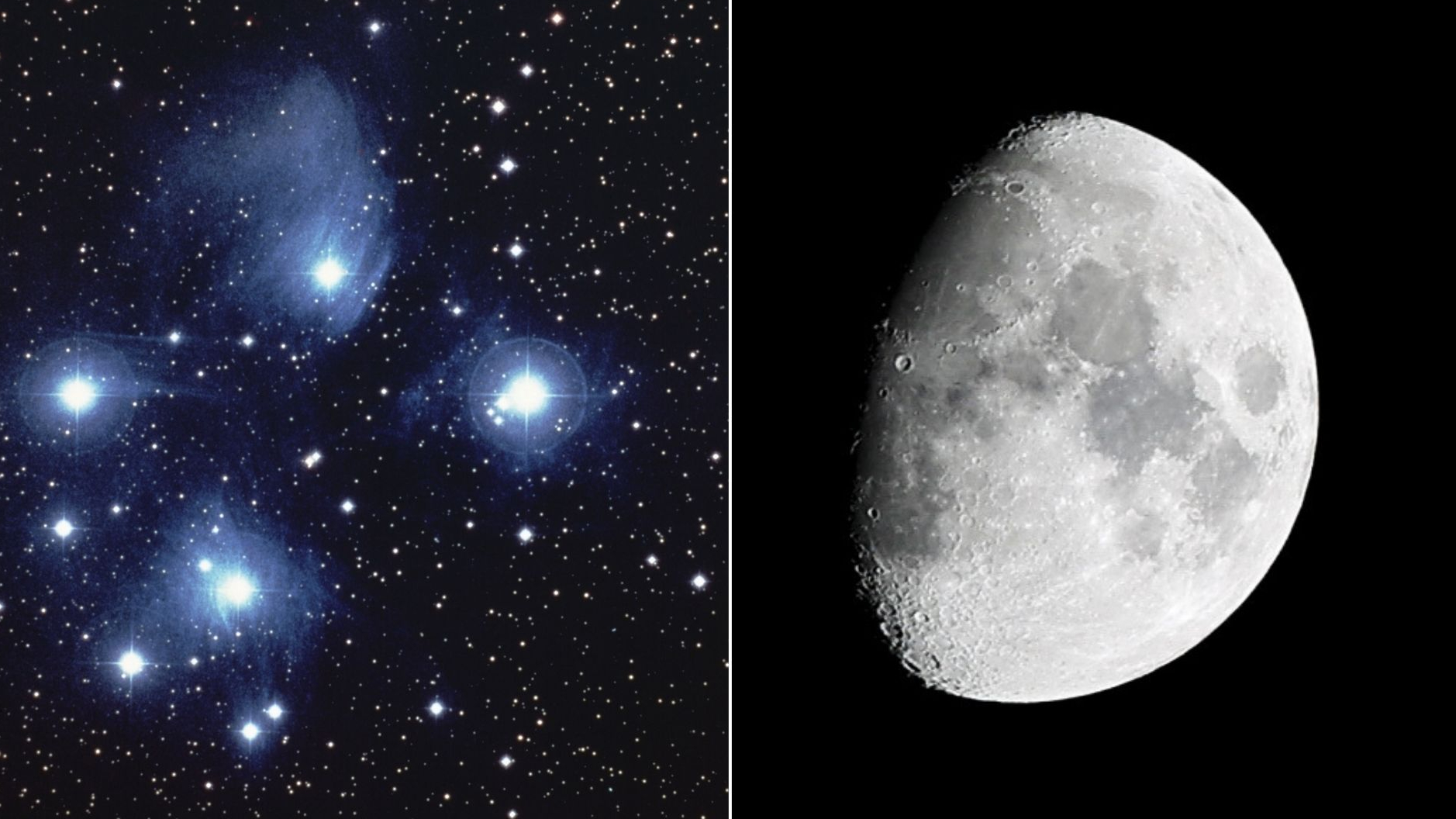Spaceflight doubleheader! SpaceX launches 2 rockets in 4-hour span (video)
SpaceX had a busy Saturday evening (March 30), launching two rockets from Florida less than four hours apart.
The action started at 5:52 p.m. EDT (2152 GMT) on Saturday, when a Falcon 9 rocket sent the Eutelsat 36D telecommunications satellite skyward from NASA's Kennedy Space Center (KSC).
Then, at 9:30 p.m. EDT (0130 GMT on Sunday, March 31), another Falcon 9 carried 23 of SpaceX's Starlink broadband satellites up from Cape Canaveral Space Force Station, which is next door to KSC.
And there was supposed to be a third launch on Saturday night as well — another Starlink mission, which was scheduled to lift off from Vandenberg Space Force Base in California during a four-hour window that opened at 10:30 p.m. EDT (7:30 p.m. California time; 0230 GMT on March 31). But SpaceX called that third mission off due to bad weather.
Related: Starlink satellite train: How to see and track it in the night sky
Both Falcon 9 first stages that launched on Saturday came back to Earth as planned, landing on SpaceX droneships at sea about 8.5 minutes after liftoff. It was the 12th liftoff and landing for the Eutelsat 36D Falcon 9 and the 18th for the Starlink booster.
Eutelsat 36D was deployed into geostationary transfer orbit about 34 minutes after launch. Once it's up and running, the satellite will provide TV broadcasting services to customers in Europe, Russia and Africa, according to EverydayAstronaut.com.
Breaking space news, the latest updates on rocket launches, skywatching events and more!
The 23 Starlink satellites were deployed into low Earth orbit as planned, joining more than 5,600 of their operational broadband brethren up there.
SpaceX already has experience with multi-launch days. Just last month, for example, the company launched a batch of Starlink satellites, the classified USSF-124 mission for the U.S. Space Force and the IM-1 private moon-landing mission in less than 24 hours.
Saturday evening's liftoffs were the 30th and 31st orbital launches of the year for SpaceX. The company plans to conduct 144 orbital missions this year, SpaceX representatives have said.

Michael Wall is a Senior Space Writer with Space.com and joined the team in 2010. He primarily covers exoplanets, spaceflight and military space, but has been known to dabble in the space art beat. His book about the search for alien life, "Out There," was published on Nov. 13, 2018. Before becoming a science writer, Michael worked as a herpetologist and wildlife biologist. He has a Ph.D. in evolutionary biology from the University of Sydney, Australia, a bachelor's degree from the University of Arizona, and a graduate certificate in science writing from the University of California, Santa Cruz. To find out what his latest project is, you can follow Michael on Twitter.


